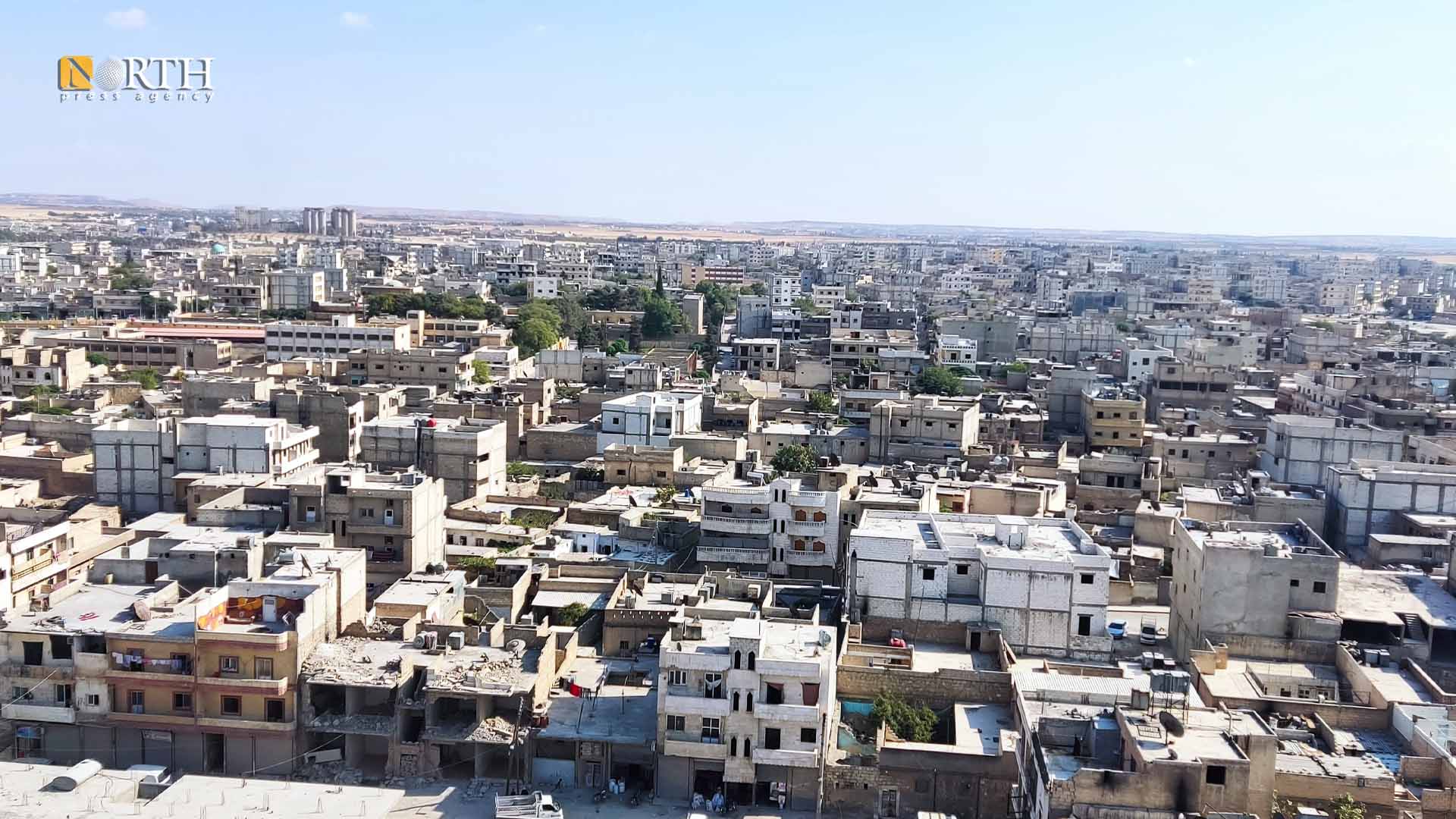ISIS crimes still in mind of Syria’s Manbij residents after years of expulsion
MANBIJ, Syria (North Press) – Five years after the expulsion of ISIS from the city of Manbij, north Syria, Mustafa al-Hameidi recalls scenes of beheading in full view of all and a way of living and thinking “similar to the pre-Islamic era,” as he described it, during ISIS’s control of his city.
On August 15, the Manbij Military Council, supported by the Syrian Democratic Forces (SDF) and the US-led Global Coalition’s air coverage, managed to expel ISIS from the city of Manbij after more than two-month battles.
“During the control of ISIS, we were living in a way similar to the pre-Islamic era in terms of clothes, the way of thinking and living,” al-Hameidi said.
He did not adapt to this situation, so he was imprisoned several times on various charges such as smoking, being late for prayer, failure to wear short clothes or shave the head.
When ISIS controlled the city, it imposed strict laws restricting basic personal freedoms. It specified a special dress for women and prohibited smoking, hookah, mobile phones, and all intellectual and cultural activities.
Al-Hameidi was forced to accept all laws imposed on residents and implement them to avoid imprisonment every time.
“A scene keeps haunting me. It was when I saw a gathering in the market and went to find out what was happening. I was shocked and felt as the life has stopped when I saw a member of ISIS beheading a civilian in his twentieth for blasphemy,” he added.
“Life does not matter to me anymore after this scene. I was afraid to go to the market due to the barbarian scenes I used to see each time I went there,” he stated.
“The one who lived in Manbij during that time is still haunted by nightmares he cannot escape,” he referred.
Al-Hameidi never imagined that ISIS may get out of the city especially after it controlled wide areas of Syria and Iraq amid no objection of any of the countries calling for “fighting terrorism and liberating the people.”
“ISIS entered Manbij through the Turkish-controlled city of Jarablus and extended to other regions they used to control at the time,” al-Hameidi pointed out.
Black days
Jamal al-Haji, who is a cosmetics seller in Manbij, described the days he spent during the control of ISIS of the city as “the worst ever in my life.”
“The events that the city witnessed then were terrifying and needs volumes of books to be written about them. Each day we saw something worse than the one before,” he said.
Al-Haji had to hire a girl in his shop, although he did not need her, as “ISIS banned men dealing with women in selling and purchasing.”
“I was not able to stay in my shop to earn a living. If one of the ISIS members saw me dealing with a woman with face or eyes uncovered, I could be flogged or attend a sharia [Islamic law] course for twenty days,” al-Haji referred.
During its control, ISIS imposed sharia courses on the residents if they violated one of its laws. That is to receive religious lessons to abide by the laws and push the people to jihad [struggle against the enemies of Islam], according to the residents of the area.
The duration of the course, which was held in the city’s mosques, was between 10 and 30 days. It included religious lessons of memorizing ISIS laws and inciting the population to jihad.
When the course was finished, the recipient was given a paper proving that he has undergone the course, according to al-Haji.
ISIS prohibited the sale of products containing females’ pictures, so they had to be wiped and removed at the risk of double and different penalties, such as flogging and hard work digging trenches and military tunnels, or breaking gravestones since they are forbidden, according to al-Haji.
He stated that the punishments I saw in the city center were “beheading for blasphemy, flogging a man because his wife uncovers her face, or hitting a woman with a bamboo stick because she uncovers her eyes. Even elderly women were not spared from the evil of the ISIS.”
Safe haven
In turn, Asma’ Muhammad, official in the Camp Affairs at the Social Affairs and Labor Committee in Manbij, said that the residents suffered various types of persecution during the ISIS control of the area.
“After the liberation of the city in 2016, the residents of Manbij were able to restore life to it again, rebuild the city and remove all the remnants of the organization,” she added.
“A year after the expulsion of ISIS, the city received displaced people from all Syrian cities such as Aleppo, Homs, Hama, Deir Hafer and Maskana, with the aim of living in it as it became a safe haven for housing,” she noted.
The number of Manbij families is 115.000, distributed over 25 neighborhoods within the city and in 200 villages and farms in the countryside, according to Muhammad.

